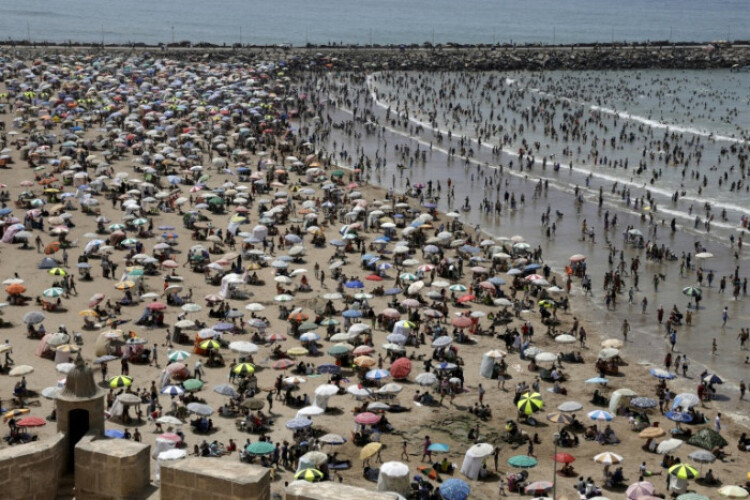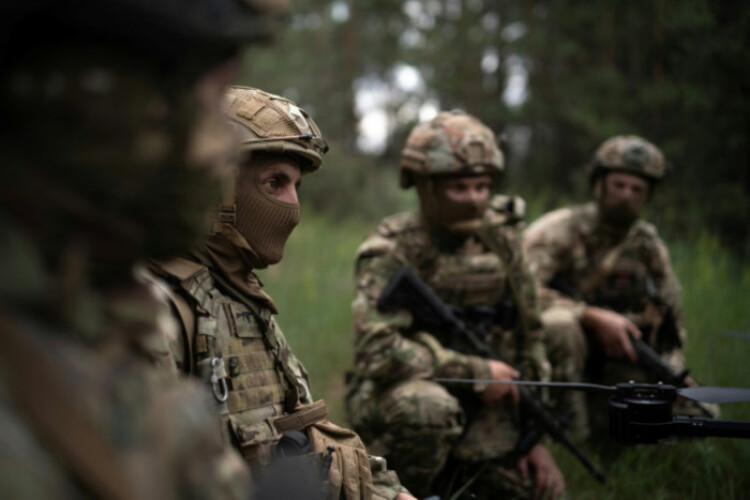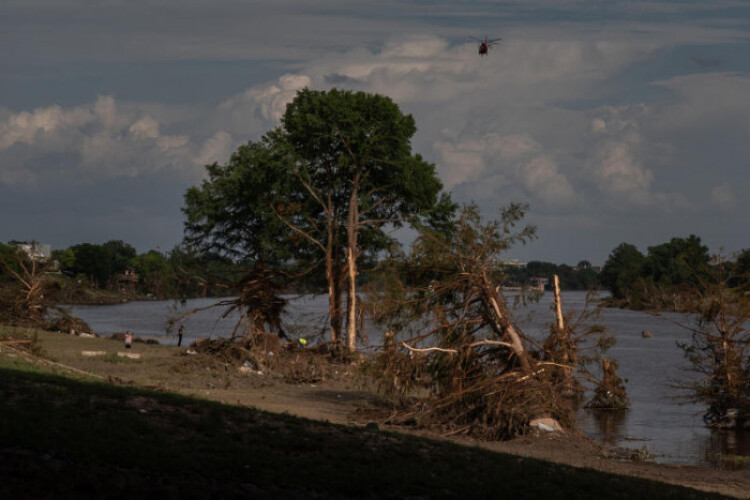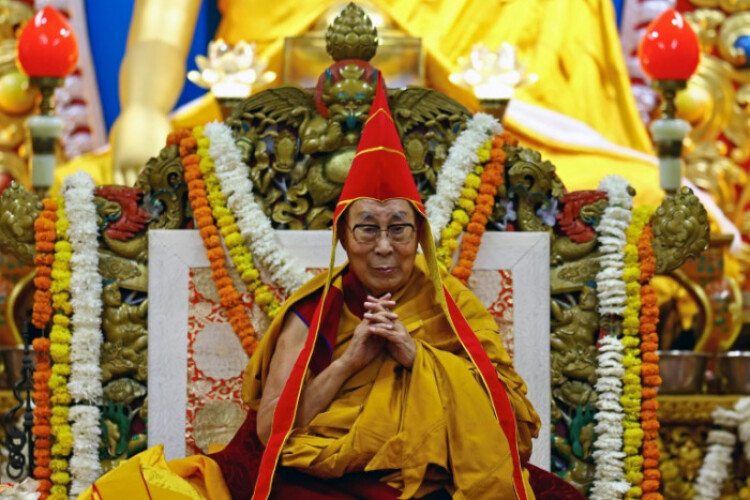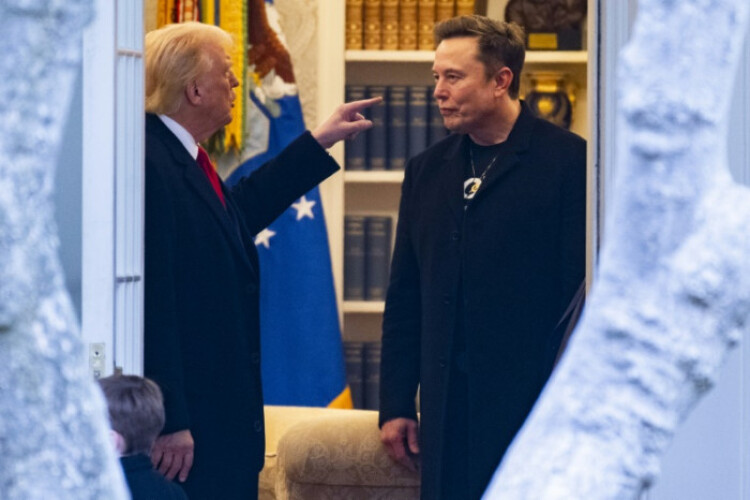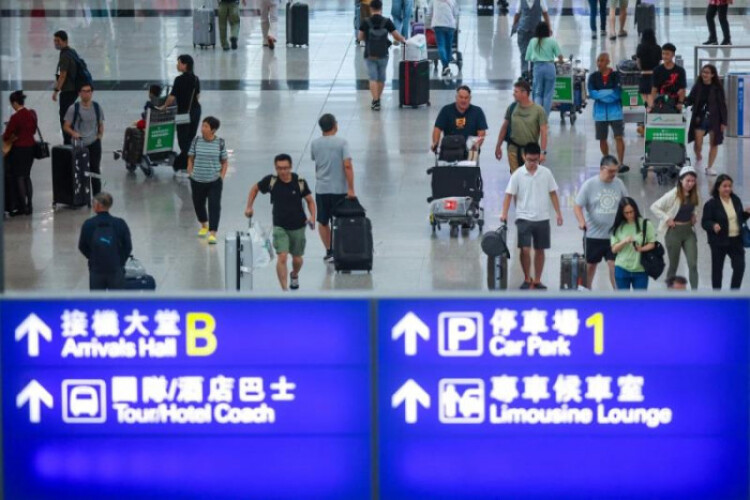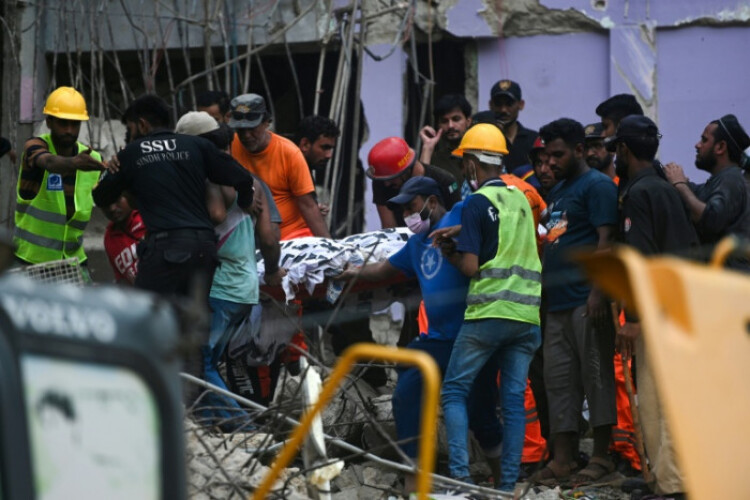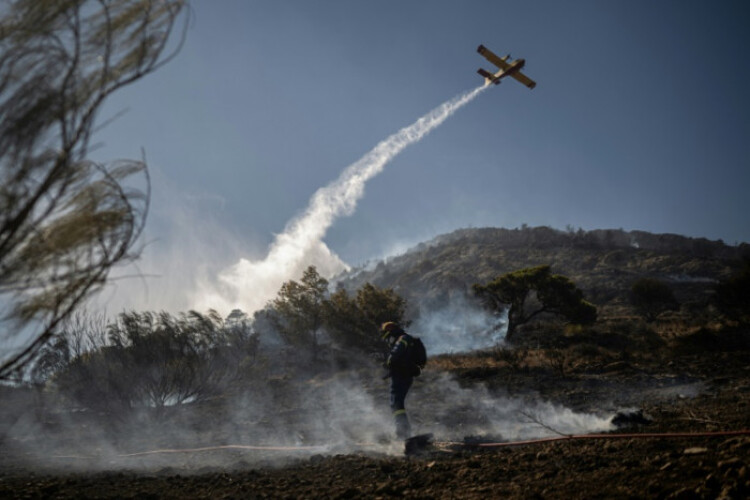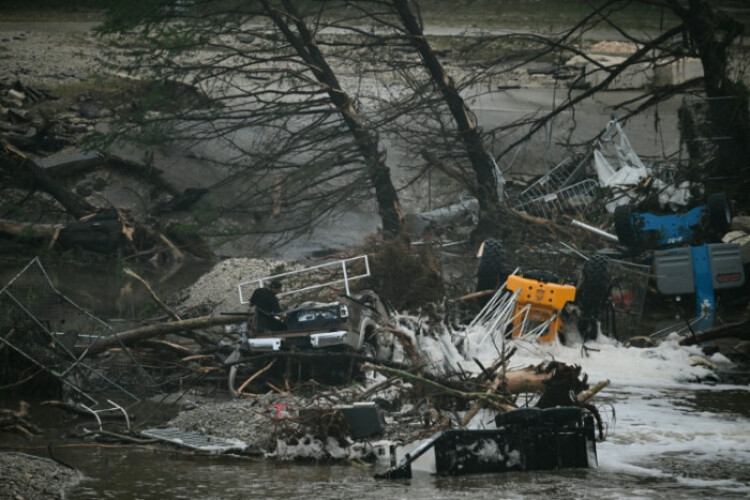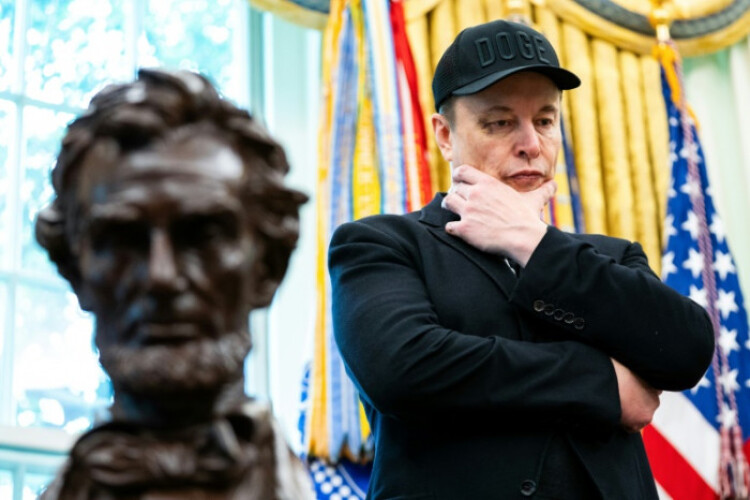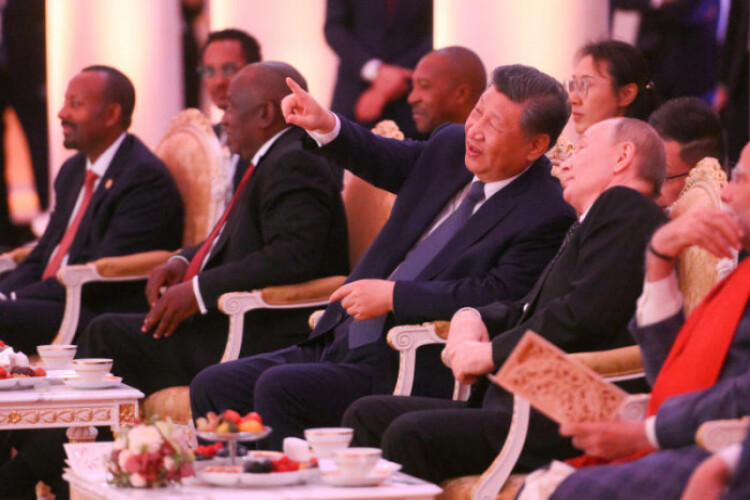
KAZAN - China and Russia are committed to boosting their cooperation for a "fair world order" amid chaotic times, their leaders stated at their third face-to-face meeting this year.
The talks between Chinese President Xi Jinping and his Russian counterpart Vladimir Putin on the sidelines of the 16th Brics summit in Kazan, Russia, on Tuesday came as the two seek to build momentum from the emerging-economies bloc to provide an alternative to the Western-led world order.
"Russian-Chinese cooperation in global affairs is one of the main stabilising factors on the world stage," Putin said in his opening remarks at the event, according to the Kremlin.
"We intend to further increase coordination at all multilateral platforms in order to ensure global security and a fair world order."
In his remarks, Xi emphasised that "the world is undergoing a major change that has not been seen in a century and the international situation is changing and chaotic".
"But I firmly believe that the deep friendship between China and Russia for generations will not change and the responsibility of a major country to help the world and the people will not change," he added, according to state media agency Xinhua.
The Chinese leader also described the two countries as having "explored a correct way for neighbouring major powers to coexist without forming alliances, engaging in confrontation or targeting third parties".
Chinese President Xi Jinping, left, and Russian counterpart Vladimir Putin. (Photo: South China Morning Post)
The meeting gathers members of Brics - named after founding members Brazil, Russia, India, China and South Africa - an association of major emerging national economies that pitches itself as an alternative to a Western-led world order.
Brics expanded this year to 10 countries after Egypt, Ethiopia, Iran, Saudi Arabia and the United Arab Emirates (UAE) formally joined. Additional countries have placed bids to follow suit, and some 40 nations were slated to take part in this week's summit.
Xi and Putin, who last met in July, have pledged in previous meetings to continue to strengthen bilateral ties in the face of Western sanctions. This includes greater cooperation on energy, stronger defence and military ties as well as enhanced trade.
"We are successfully implementing joint projects in energy, industry, high technology, transport, agriculture and many other areas," Putin said during Tuesday's meeting.
Putin highlighted closer ties with China in an Oct 1 message to Xi marking the 75th anniversary of the founding of the People's Republic.
"Despite the complex international landscape, we have recently managed to significantly increase trade volumes and implement numerous large-scale bilateral projects across various sectors," Putin wrote.
China's volume of Russian imports has fallen since the United States and its allies levied sanctions on Moscow after it invaded Ukraine in 2022, with the sanctions hampering Moscow's ability to settle trade using the international payment system.
But Russia remains a major source of crude oil for China, and the two have a substantial number of energy-related cooperation projects in both fossil fuels and renewable energy.
At the same time, Chinese exports to Russia have soared, reaching a highest-ever monthly figure of US$11.25 billion in September. Mainland businesses have rushed to fill in export gaps left by the departure of Western firms from Russia.
Russian Deputy Foreign Minister Sergey Ryabkov on Tuesday told Serbian newspaper Politika that "everybody will see important developments" at the summit regarding the establishment of a mutual Brics payment mechanism.
Xi and Putin last year agreed to a comprehensive development plan for Sino-Russian economic cooperation to run until 2030 and aimed at boosting bilateral trade volumes and energy cooperation.
And at the Shanghai Cooperation Organisation summit held in Kazakhstan in July, the pair reaffirmed their commitment to defending a multipolar world, indicating ambitions to unite the Global South.
Last week, the US announced sanctions against two Chinese companies alleged to be cooperating with Russia to design and build long-range attack drones. The sanctions are the latest levied against those believed to support Russia's war against Ukraine.
Despite its close ties with Moscow, Beijing has continued to call for de-escalation of the armed conflict in Ukraine. Foreign Minister Wang Yi took part in various talks last month to position China as a peacemaker and met Putin in St Petersburg.
"The Brics cooperation mechanism is the most important platform for solidarity and cooperation among emerging-market countries and developing countries in the world today," Xi said during the meeting with Putin, according to Xinhua.
Xi added that he looked forward to having detailed discussions with the Brics leaders to further develop cooperation between the nations and open up opportunities for countries in the Global South.
Wang accompanied Xi to Kazan, along with Cai Qi, the president's chief of staff and China's No 5 official.
The talks between Chinese President Xi Jinping and his Russian counterpart Vladimir Putin on the sidelines of the 16th Brics summit in Kazan, Russia, on Tuesday came as the two seek to build momentum from the emerging-economies bloc to provide an alternative to the Western-led world order.
"Russian-Chinese cooperation in global affairs is one of the main stabilising factors on the world stage," Putin said in his opening remarks at the event, according to the Kremlin.
"We intend to further increase coordination at all multilateral platforms in order to ensure global security and a fair world order."
In his remarks, Xi emphasised that "the world is undergoing a major change that has not been seen in a century and the international situation is changing and chaotic".
"But I firmly believe that the deep friendship between China and Russia for generations will not change and the responsibility of a major country to help the world and the people will not change," he added, according to state media agency Xinhua.
The Chinese leader also described the two countries as having "explored a correct way for neighbouring major powers to coexist without forming alliances, engaging in confrontation or targeting third parties".
Chinese President Xi Jinping, left, and Russian counterpart Vladimir Putin. (Photo: South China Morning Post)
The meeting gathers members of Brics - named after founding members Brazil, Russia, India, China and South Africa - an association of major emerging national economies that pitches itself as an alternative to a Western-led world order.
Brics expanded this year to 10 countries after Egypt, Ethiopia, Iran, Saudi Arabia and the United Arab Emirates (UAE) formally joined. Additional countries have placed bids to follow suit, and some 40 nations were slated to take part in this week's summit.
Xi and Putin, who last met in July, have pledged in previous meetings to continue to strengthen bilateral ties in the face of Western sanctions. This includes greater cooperation on energy, stronger defence and military ties as well as enhanced trade.
"We are successfully implementing joint projects in energy, industry, high technology, transport, agriculture and many other areas," Putin said during Tuesday's meeting.
Putin highlighted closer ties with China in an Oct 1 message to Xi marking the 75th anniversary of the founding of the People's Republic.
"Despite the complex international landscape, we have recently managed to significantly increase trade volumes and implement numerous large-scale bilateral projects across various sectors," Putin wrote.
China's volume of Russian imports has fallen since the United States and its allies levied sanctions on Moscow after it invaded Ukraine in 2022, with the sanctions hampering Moscow's ability to settle trade using the international payment system.
But Russia remains a major source of crude oil for China, and the two have a substantial number of energy-related cooperation projects in both fossil fuels and renewable energy.
At the same time, Chinese exports to Russia have soared, reaching a highest-ever monthly figure of US$11.25 billion in September. Mainland businesses have rushed to fill in export gaps left by the departure of Western firms from Russia.
Russian Deputy Foreign Minister Sergey Ryabkov on Tuesday told Serbian newspaper Politika that "everybody will see important developments" at the summit regarding the establishment of a mutual Brics payment mechanism.
Xi and Putin last year agreed to a comprehensive development plan for Sino-Russian economic cooperation to run until 2030 and aimed at boosting bilateral trade volumes and energy cooperation.
And at the Shanghai Cooperation Organisation summit held in Kazakhstan in July, the pair reaffirmed their commitment to defending a multipolar world, indicating ambitions to unite the Global South.
Last week, the US announced sanctions against two Chinese companies alleged to be cooperating with Russia to design and build long-range attack drones. The sanctions are the latest levied against those believed to support Russia's war against Ukraine.
Despite its close ties with Moscow, Beijing has continued to call for de-escalation of the armed conflict in Ukraine. Foreign Minister Wang Yi took part in various talks last month to position China as a peacemaker and met Putin in St Petersburg.
"The Brics cooperation mechanism is the most important platform for solidarity and cooperation among emerging-market countries and developing countries in the world today," Xi said during the meeting with Putin, according to Xinhua.
Xi added that he looked forward to having detailed discussions with the Brics leaders to further develop cooperation between the nations and open up opportunities for countries in the Global South.
Wang accompanied Xi to Kazan, along with Cai Qi, the president's chief of staff and China's No 5 official.

